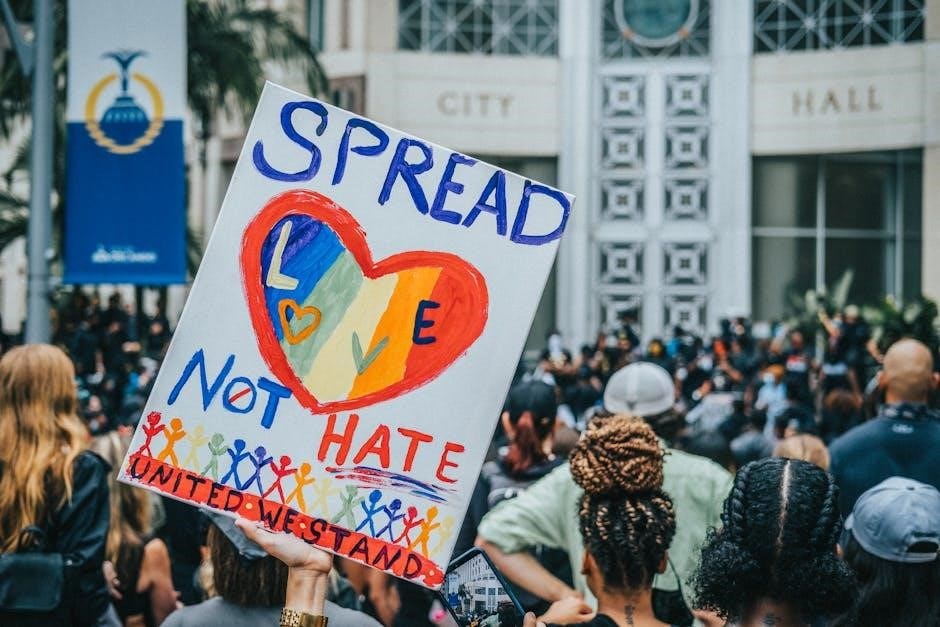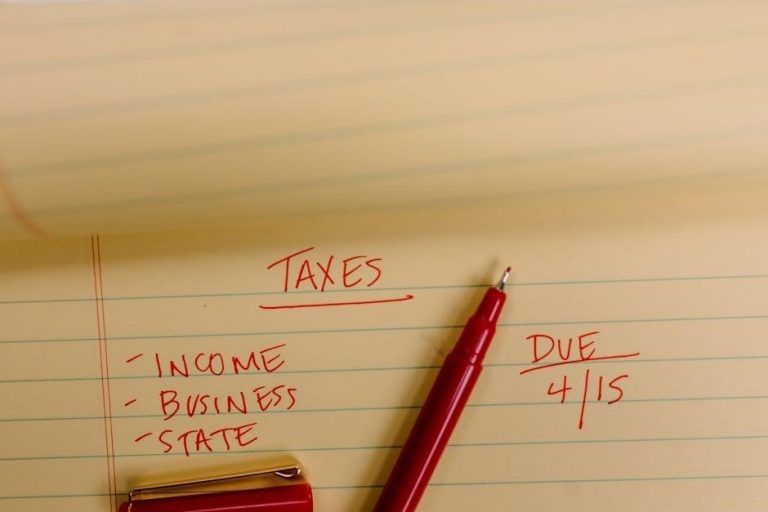We the People by Thomas E․ Patterson is a concise and insightful introduction to American government, emphasizing critical thinking and real-world applications․ Patterson, a renowned Harvard professor, explores the evolving political landscape, making complex concepts accessible for students and citizens alike․ The book’s engaging approach fosters a deeper understanding of democracy and civic responsibility, encouraging readers to think critically about governance and their role within it․
1․1 Overview of the Book
We the People by Thomas E․ Patterson is a comprehensive yet concise introduction to American government, designed to engage students and citizens alike․ The book explores the foundational principles of U․S․ democracy, including the Constitution, federalism, and the separation of powers․ Patterson emphasizes critical thinking, encouraging readers to analyze political institutions, public opinion, and the media’s role in shaping governance․ The text also addresses contemporary challenges, such as political polarization and misinformation, providing context for understanding the complexities of modern democracy․ With a focus on real-world examples and accessible language, We the People serves as an essential resource for anyone seeking to understand the evolving nature of American government and civic engagement․
1․2 Importance of Critical Thinking in American Government
Critical thinking is a cornerstone of effective civic engagement, as emphasized in We the People․ Thomas E․ Patterson underscores the necessity of analyzing information objectively and evaluating evidence to form informed opinions․ In today’s politically charged environment, where misinformation spreads rapidly, critical thinking helps citizens discern fact from fiction․ It fosters a deeper understanding of policy issues, enabling individuals to hold elected officials accountable․ Patterson argues that without critical thinking, democracy risks becoming vulnerable to manipulation and polarization․ By encouraging readers to question assumptions and seek diverse perspectives, We the People empowers citizens to participate meaningfully in governance, ensuring the vitality of American democracy․

Structure of American Government
The U․S․ government is structured around federalism and separation of powers, with legislative, executive, and judicial branches ensuring accountability through checks and balances․
2․1 The Constitution and Its Evolution
The Constitution, the foundation of American government, was ratified in 1788 and has since undergone significant evolution through amendments and interpretations․ Originally designed to balance power among federal and state governments, it has adapted to societal changes, ensuring the rights and freedoms of citizens․ The Bill of Rights, added in 1791, guaranteed individual liberties, while later amendments addressed issues like slavery, suffrage, and equal protection․ Landmark Supreme Court decisions have further shaped its interpretation, reflecting the nation’s moral and political growth․ Patterson’s analysis highlights how the Constitution remains a living document, evolving to meet modern challenges while maintaining its core principles of democracy and justice․
2․2 Federalism and the Division of Power
Federalism is a cornerstone of American government, dividing power between the federal government and state governments to ensure a balance of authority․ This system of dual sovereignty prevents any single entity from dominating, fostering accountability and innovation․ Patterson explains how federalism allows states to address local issues while the federal government manages national and international matters․ This division encourages political diversity, as states can experiment with policies tailored to their populations․ However, debates persist over the appropriate scope of federal versus state authority, particularly in areas like healthcare and education․ Federalism’s adaptability has allowed it to endure, maintaining unity while respecting regional differences, and remains a vital component of American governance, as analyzed by Patterson in his exploration of government structures;

The Role of the Media in Politics
The media plays a pivotal role in shaping political discourse, influencing public opinion, and holding elected officials accountable․ Patterson highlights its dual function of informing and engaging citizens, while also addressing challenges like misinformation and bias, which can erode trust in democratic institutions․

3․1 Media Influence on Public Opinion
Thomas E․ Patterson emphasizes the profound impact of media on public opinion, noting its role as both an information source and a shaper of perceptions․ The media acts as a gatekeeper, determining which issues gain prominence and how they are framed․ Patterson highlights how media fragmentation and the rise of partisan outlets have led to selective exposure, reinforcing existing beliefs․ Misinformation and sensationalism further distort public opinion, often prioritizing drama over factual accuracy․ This manipulation can erode trust in institutions and polarize society․ Patterson argues that understanding media influence is crucial for fostering informed citizenship and mitigating its negative effects on democracy․
Public Opinion and Political Participation
Public opinion significantly shapes political participation, as citizens’ beliefs and attitudes influence their engagement in elections, protests, and civic activities․ This dynamic interaction drives democratic processes and policy outcomes․
4․1 Why Young People Are Disengaging from Politics
Young people are increasingly disengaging from politics due to growing cynicism and mistrust in political institutions․ The rise of polarization and misinformation has led to a sense of powerlessness among youth, who often feel their voices are not heard․ Additionally, the complexities of modern governance and the dominance of negative media coverage further alienate young individuals․ Patterson highlights how the erosion of civic education and the increasing influence of social media have exacerbated this trend․ As a result, many young people opt out of traditional political participation, seeking alternative forms of engagement that they believe are more impactful․ This disengagement poses a significant challenge to the health and future of American democracy, as it undermines the representation and inclusion of younger generations in the political process․

Current Challenges in American Democracy
American democracy faces significant challenges, including declining civic engagement, political polarization, and the spread of misinformation․ These issues threaten the foundation of democratic governance and public trust․
5․1 The Rise of Polarization in Politics
Political polarization in the U․S․ has intensified, with stark divisions between Democrats and Republicans․ Patterson highlights how this polarization undermines bipartisan cooperation and exacerbates social tensions․ The rise of partisan media and ideological extremism has deepened these divides, making compromise increasingly difficult․ This shift has significant implications for governance, as gridlock in Congress and state legislatures hampers effective policymaking․ Furthermore, polarization affects public perception, with many citizens viewing opposing parties as threats rather than competitors․ Patterson argues that this trend erodes democratic norms and challenges the stability of American democracy․
5․2 The Impact of Misinformation
Misinformation has become a significant challenge in American democracy, distorting public perception and decision-making․ Patterson examines how false or misleading information spreads rapidly, often through social media and partisan outlets․ This phenomenon undermines trust in institutions and exacerbates political polarization․ Misinformation campaigns frequently target vulnerable populations, manipulating opinions on critical issues like elections, healthcare, and climate change․ Patterson argues that this trend threatens democratic stability by creating an environment where facts are increasingly contested․ He emphasizes the need for media literacy and fact-based discourse to counteract the spread of misinformation and restore public confidence in democratic processes․
Thomas E․ Patterson’s Broader Impact
Thomas E․ Patterson, a Bradlee Professor at Harvard, has significantly influenced political science through his works like How America Lost Its Mind, addressing democracy’s decline and misinformation’s role in eroding rational discourse, while advocating for fact-based political engagement․
6․1 His Contributions to Political Science
Thomas E․ Patterson has made significant contributions to political science, particularly through his scholarship on American democracy and governance․ As the Bradlee Professor of Government and the Press at Harvard University, he has authored influential works that explore the intersection of politics, media, and public opinion․ His research emphasizes the importance of critical thinking and civic engagement, addressing issues such as political polarization, misinformation, and the erosion of trust in institutions․ Patterson’s work challenges readers to think deeply about the challenges facing American democracy and the role of citizens in sustaining it․ His contributions have shaped both academic discourse and public understanding of governance, making him a leading voice in contemporary political science․
6․2 Other Notable Works by Thomas E․ Patterson
Thomas E․ Patterson is a prolific author with a range of notable works beyond We the People․ His book How America Lost Its Mind: The Assault on Reason That’s Crippling Our Democracy critically examines the rise of misinformation and the decline of rational discourse in American politics․ Another significant work, The Vanishing Voter: Public Involvement in an Age of Uncertainty, explores the dynamics of public engagement and disengagement in political processes․ Patterson’s scholarship consistently emphasizes the importance of critical thinking and civic responsibility, offering valuable insights into the challenges facing modern democracies․ His contributions extend beyond academia, influencing public discourse and fostering a deeper understanding of governance and citizenship․




